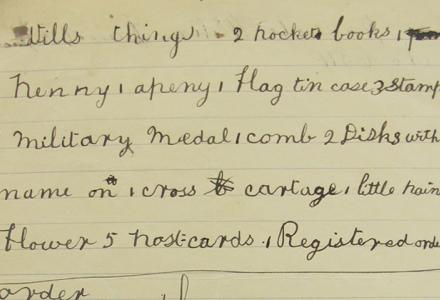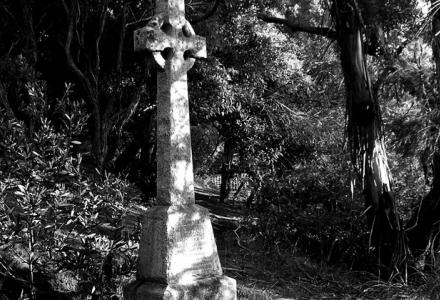John Hutchinson was shot by a sniper at Gallipoli. It would take Private Hutchinson over two hours to die. It is said that in the last moments of life, a dying man’s thoughts turn to the ones he loves. John Hutchinson thought only of his sergeant.
‘Casualty lingered in pain,’ Sergeant Matthews, another man from the 8th Battalion, reported to the Red Cross, he ‘was quite conscious to the end and gave a message to his very particular friend, Sgt Carson of the 8th Battalion’. By the time that interview was recorded Carson and the 8th had been transferred to France and the battalion had suffered hundreds of casualties. But that final message from a dying man made an indelible impression on Sergeant Matthews’ memory. He did not use the words soldiers usually chose to describe their friendships, ‘cobber’ or ‘mate’. Perhaps because this relationship seemed something other than that, something more intense and more familiar. There was intimacy there that Sergeant Mathews did not quite understand, and quite probably didn’t approve of.
Casualty was very much attached to Sgt Carson and the boys referred to them as Lord and Lady Carson … Sgt Carson stuck to him so closely.
That mocking phrase, ‘Lord and Lady Carson’ served to identify two men whose private companionship set them apart from their mates, and whose very behaviour was deemed inappropriate and effeminate.
Here we should sound a word of caution. One should not read too much into a single paragraph from a single file. And we cannot assume that our emotional sensibilities today are the same as those in the past. In truth, we know virtually nothing about Hutchinson and Carson’s relationship and we can never know what these men’s sexual preference may have been.
What we do know is that homosexuality was illegal in early twentieth-century Australia. And we know homosexuals faced imprisonment and dishonourable discharge from the Army. We can also state with confidence that homosexuals served then just as they serve now and that patriotism, loyalty, and a sense of duty are not defined by sexual preference. John Hutchinson lost his life at Anzac within forty-eight hours of the Landing, just as the sun faded over Samothrace. His family was no doubt told he died fighting for freedom, but was he really free to choose the one he loved?
John Hutchinson’s story reminds us of a largely forgotten dimension of the history of the First AIF: how many LGBTQIA men and women chose to serve and what discrimination did they face? It also suggests the way sexually transgressive memories of war have been marginalised in official discourse. As late as 1982, a group of gay servicemen representing the Australian Army, Navy, and Air Force were denied permission to lay a wreath at Victoria’s Shrine of Remembrance. Their exclusion mirrored the marginalisation and persecution of non-heterosexual women and men in society as a whole.



